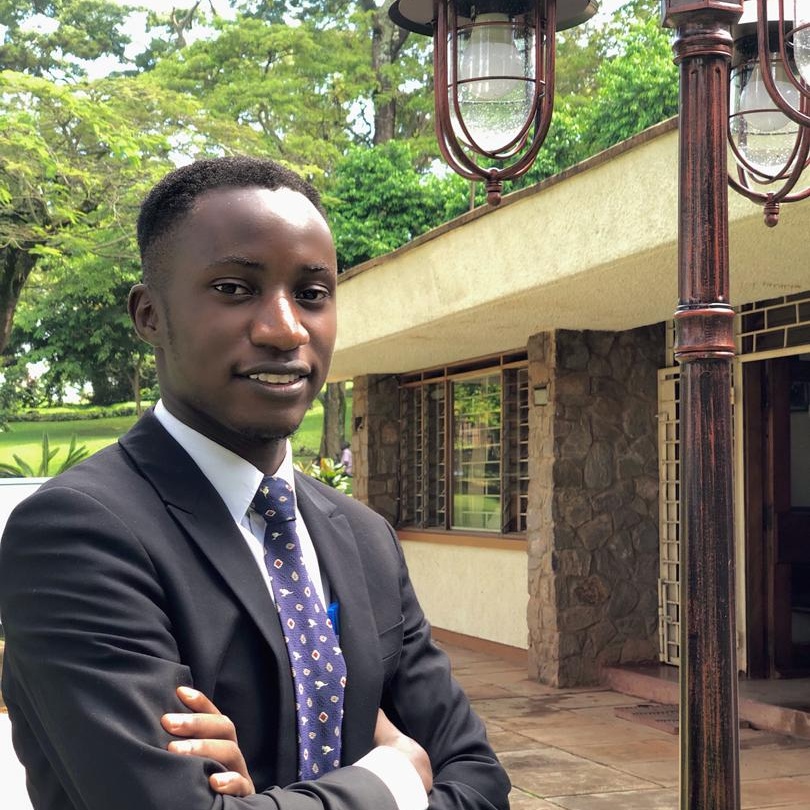Unraveling History
The 2001 Electoral Petition: A Turning Point in Uganda’s Democracy?
“In the fabric of history, each thread is a decision, each pattern an election, and each tear a petition that could have changed it all.”
BY: EDGAR OKITOI
During a discussion on constitutional history at the UCU School of Law my mind traveled back in history to a landmark petition. It was a dawn of the new millennium, Uganda stood at a crossroads, its destiny hanging on the outcome of a contentious presidential election, few events have been as contentious or as pivotal.
The year was 2001, and the air was thick with the promise of change, especially among the youth population, and the specter of continuity among the political analysts. It was an election that would be etched in the collective memory of the nation, not just for the results announced in the dead of night but for the legal odyssey it precipitated.
A Nation Poised for Change – Recalling the nation’s history
The political landscape of Uganda in 2001 was a mosaic of hope and disillusionment. The country was grappling with the aftermath of decades of civil unrest and challenges of establishing a stable political system. President Yoweri Museveni, the 1986 revolutionary leader turned head of state, who had been in power since 1986 was seeking another term amidst growing discontent over his prolonged rule, his vision of the future contested by Dr. Kizza Besigye, a former comrade with a reformist zeal who galvanized those who yearned for change. The stage was set for a political showdown that would reverberate through the halls of justice. Who better to take on the revolutionary leader than the person with whom the revolution was done, a personal physician and military officer.
The Day Democracy Was Tested – Voting day.
March 12, 2001, dawned with the promise of democracy’s triumph. Citizens across the nation cast their votes in what was billed as a watershed moment of the nation, each ballot a whisper of their will. When the Electoral Commission declared Museveni the victor with a sweeping majority, a shadow fell upon the land. Allegations of electoral malpractice unfurled like dark clouds on the horizon. Suprisingly though, the winner, who won by 69.33% also claimed voter fraud suggesting that he should have won by 75%. Democracy, in Uganda hang in a balance, the country that not so long ago had its constitution abolished, not once but twice by Dr Apollo Milton Obote in 1966 and Field Marshall Idi Amin in 1971, and it was with this context, that the Supreme Court arrived at its decision.
Besigye’s Bold Challenge – Trip to the Supreme Court.
Refusing to let the voice of dissent be stifled, Besigye mounted a legal challenge under Article 104 of the 1995 Constitution of the Republic of Uganda, the legal battle would shake the foundations of the nation’s fledgling democracy. His petition to the Supreme Court was not just a contestation of results but a clarion call for electoral integrity.
The Verdict That Echoed Through Time – The Decision
The Supreme Court’s halls became the arena where Uganda’s democratic resolve was put to the ultimate test. The justices, robed in the weight of their office, delivered a verdict that acknowledged the election’s imperfections but upheld its outcome, the rules of constitutional interpretation – the recalling of the nation’s history contributed to the decision of the highest court in the Land. It was a ruling that would be debated in the annals of history for years to come. Some hailed it as a triumph of the Rule of Law while others as a missed opportunity for judicial intervention in the face of electoral injustice.
The Road Not Taken – The Historical What If
What if the gavel had fallen the other way? This is a journey through the corridors of what might have been, a reflection on the power of judicial decisions to alter the destiny of a nation. The ruling left many Ugandans to wonder: Could Uganda have experienced a different leadership and perhaps a different Uganda? Or The decision could have undone years of achieving peace and stability in Uganda. Would The NRA/NRM go back to the bush?
Delving into the labyrinth of ‘what ifs’ – a trip into the realms of possibility. The narrative weaves through these uncharted corridors, inviting us to ponder the alternate realities that lay but a judicial decree away.

The Legacy of a Petition
The 2001 electoral petition stands as a testament to the enduring quest for a just and equitable society. It is a reminder that in the grand tapestry of history, every stitch matters, and the needle of justice can sway the direction of a country’s journey. The case underscored the crucial role of an independent judiciary in upholding electoral integrity. It certainly highlighted the need for electoral reforms and strengthening democratic institutions.
The case is a sentinel, guarding the lessons learned and the strides yet to be taken. It is a call to the future, urging vigilance and participation, reminding all that the pen and gavel can, indeed, redraw the contours of history.
Conclusion – The Cliffhanger
As the sun sets on the memories of the 2001 election, the lessons it imparted remain luminous. This is a call to action, urging you to ponder the significance of your choices and the impact of your voices in shaping the future of democracy in Uganda. Those who don’t learn from history are doomed to repeat it. STUDY HISTORY.
Edgar Okitoi is a third year student of law at Uganda Christian University. He is passionate about History, Philosophy, Corporate and Commercial law . He envisions a society where universities are a hub for societal and political growth. The Standard invites articles on History to be published under the column,THE HISTORIAN.


